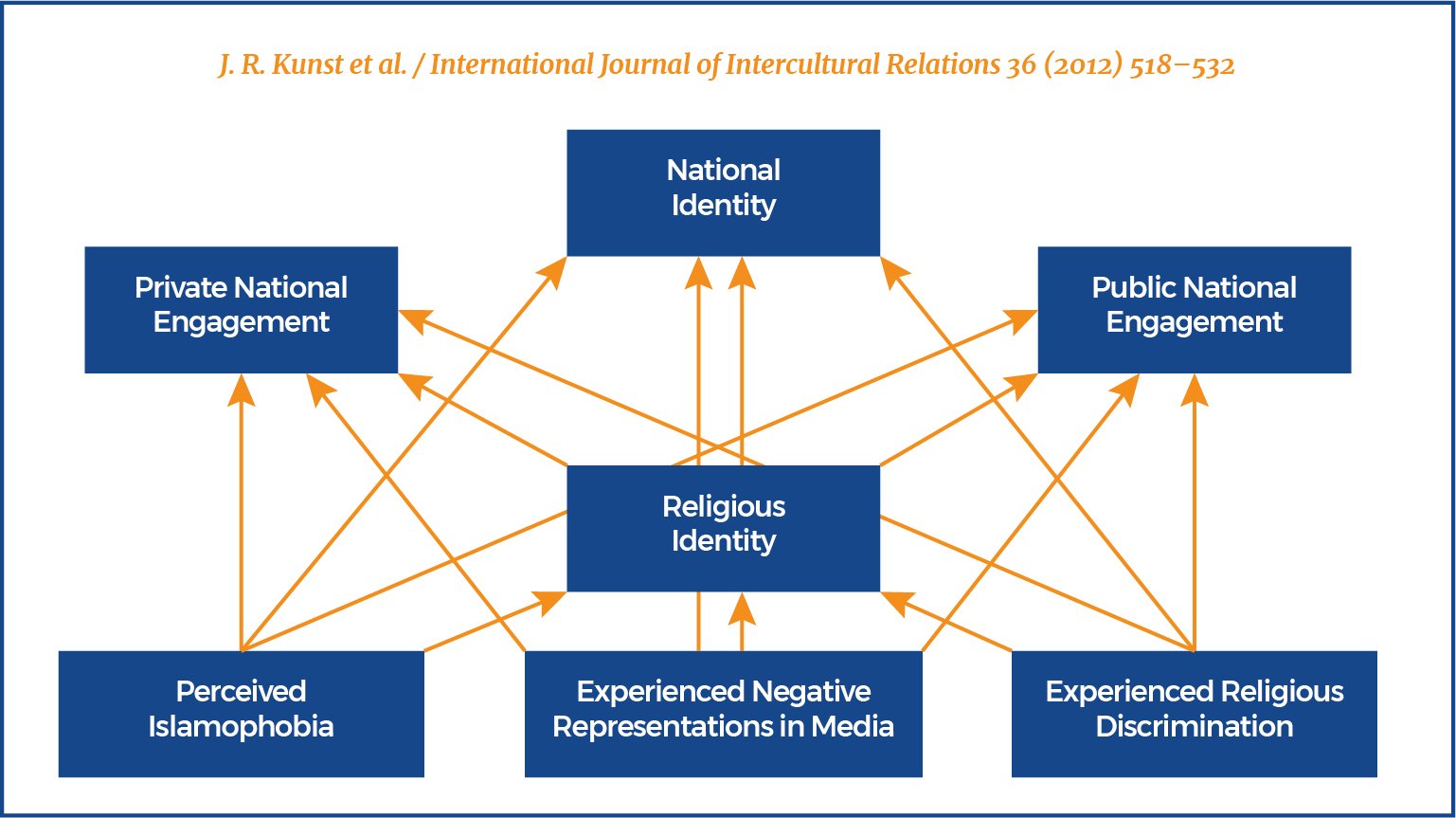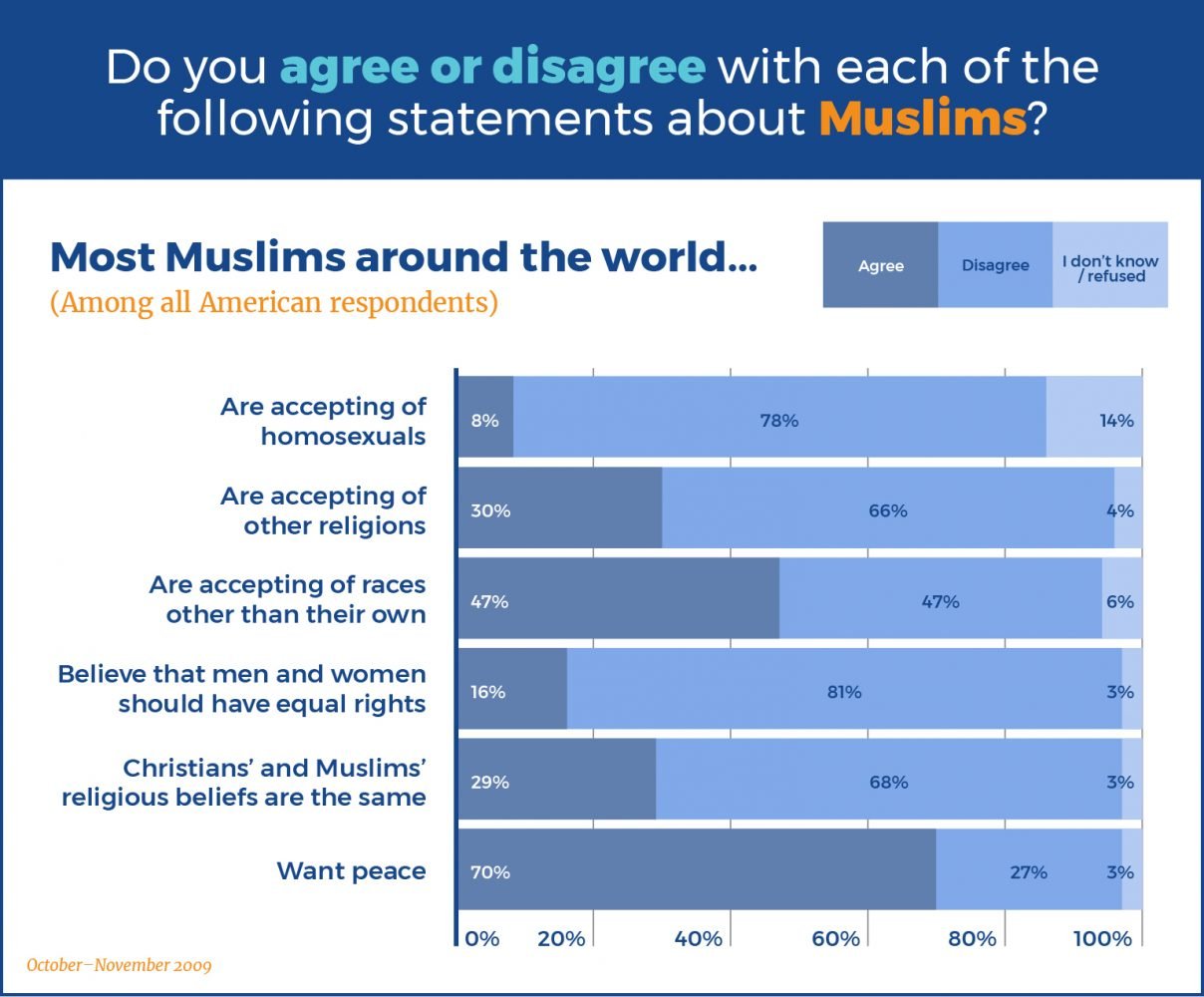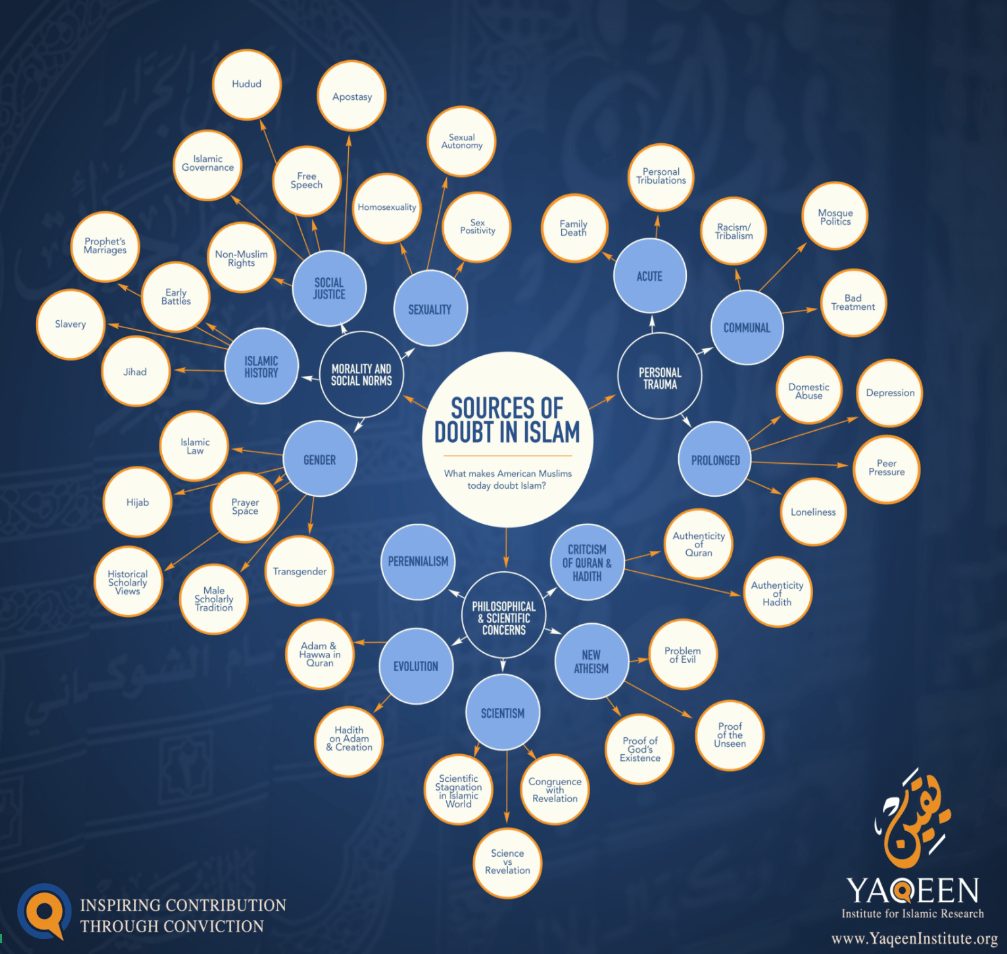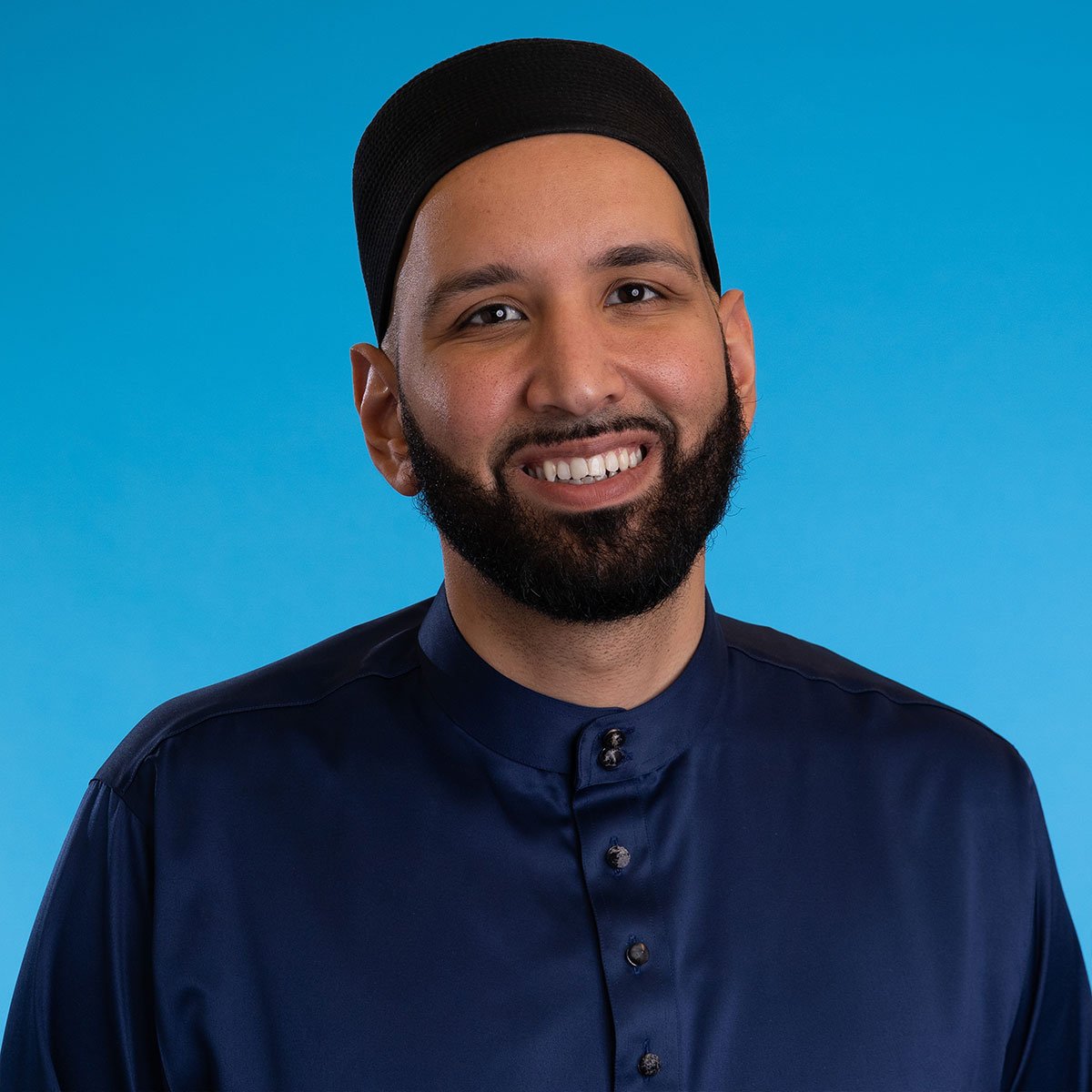
Exploring the Faith and Identity Crisis of American Muslim Youth
Introduction
Acknowledgments
Research Participants
Instrumentation
Measuring The Impact of Islamophobia on Muslims
Internalized Racism – Internalized Islamophobia

Inability to Construct an Identity
The Role of Personal Experience in What Types of Islamophobia Are Ingested
Women’s Issues Vs. Violence
Historical Events
...in addition to bumping up against doctrinal tenets, social norms can also render certain episodes in Islamic history problematic in the minds of American Muslims. The marriage of the Prophet Muhammad (peace be upon him) to Aisha is a case in point. A favorite target of Islamophobes, this key moment in the prophetic history can provide an opening for doubt if not properly contextualized. Similarly, the issue of slavery in Islam has become a recurring topic of concern, particularly as younger American Muslims are now more sensitive to the issues of social injustice around them. As one scholar who gave an in-depth lecture on this topic put it, “The ‘Islam came to abolish slavery’ response is simply insufficient.”[25]

The culture around dating and casual sexual encounters can lead some Muslims to become frustrated with Islam’s prohibition on premarital relations. Doubt, then, can come about through a desire to alleviate mental anguish: “[Those that] have dated […][that] have been sexually active […] it’s not in their benefit to make Islam out to be the truth. They want it to not be the truth so they don’t feel so guilty about doing those things.[26]
Reinforcement of Islamophobic Messages in Islamic Spaces
Non-Muslim Counseling and the Mental Anguish of Young Muslims

The culture around dating and casual sexual encounters can lead some Muslims to become frustrated with Islam’s prohibition on premarital relations. Doubt, then, can come about through a desire to alleviate mental anguish: “[Those that] have dated […][that] have been sexually active […] it’s not in their benefit to make Islam out to be the truth. They want it to not be the truth so they don’t feel so guilty about doing those things."[29]
This young woman said, “To get to know someone before marriage, we have to live with them before marriage. This way, we know their real personality and we don’t get fooled. But we can’t do that as Muslims but it is better to.” It was an interesting window into her mind where she believed that our restrictions were a burden, not a protection.[30]
Islam: Empowerment or Impediment
Discussion
Notes
[1] Kunst, J. R., Tajamal, H., Sam, D. L., & Ulleberg, P. (2012). Coping with Islamophobia: The effects of religious stigma on Muslim minorities’ identity formation. International Journal of Intercultural Relations, 36(4), 518-532. doi: 10.1016/j.ijintrel.2011.12.014.
[2] Dalia Mogahed and Fouad Pervez, “American Muslim Poll: Participation, Priorities, and Facing Prejudice in the 2016 Elections,” Institute for Social Policy and Understanding, March 2016.
[3] van De Vijver, F. J. R., & Leung, K. (1997). Equivalence and bias: A review of concepts, models, and data analytic procedures. In D. Matsumoto & F. J. R. van De Vijver (Eds.), Cross-cultural research methods in psychology (pp. 17-45). Cambridge, UK: Cambridge University Press. doi:10.1017/cbo9780511779381.003.
[4] Clark, K. B., & Clark, M. P. (1966). Emotional factors in racial identification and preference in Negro children. In M. M Grossack (Ed.), Mental health and segregation (pp. 53-63). Berlin: Springer. doi:10.1007/978-3-662-37819-9_7.
[5] Quoted in Pinkney, C (2012). The effects of internalized oppression on the Black community, p. 96. doi:10.1017/cbo9780511562280.006.
[6] Aaser, S. H. “From Islamophobia to Identity Crisis: Internalized Oppression Among American Muslim Children,” Noor Kids, 2016.
[7] Ibid.
[8] Ibid.
[9] Laird, L. D. (2007). Muslim patients and health disparities in the UK and the US. Archives of Disease in Childhood, 92(10), 922–926. PMC.
[10] Howes, A. (2004). Book Review: Islamophobia: Issues, challenges and action (Runnymede Commission on British Muslims and Islamophobia). Improving Schools, 7(3), 301-302. doi:10.1177/1365480204049714.
[11] Allen, C. (2014). Exploring the impact of Islamophobia on visible Muslim women victims: A British case study. Journal of Muslims in Europe, 3(2), 137-159.
[12] Copsey, Nigel, Janet Dack, Mark Littler and Matthew Feldman. “Anti-Muslim hate crime and the far right.” Middlesbrough Centre for Fascist, Anti-Fascist and Post-Fascist Studies. 2013.
[13] Ibid.
[14] Bhui, K., Stansfeld, S., McKenzie, K. et al. (2005). Racial/ethnic discrimination and common mental disorders among workers: Findings from the EMPIRIC Study of ethnic minority groups in the United Kingdom. American Journal of Public Health, 95(3), 496–501.
[15] Laird, L. D., Amer, M. M., Barnett, E. D., & Barnes, L. L. (2007). Muslim patients and health disparities in the UK and the US. Archives of Disease in Childhood, 92(10), 922-926; also see Wessler S. L., & De Andrade, L. L. (2006). Slurs, stereotypes, and student interventions: Examining the dynamics, impact and prevention of harassment in middle and high school. Journal of Social Issues, 62(3), 511–532.
[16] Kunst, et al. (2012).
[17] Ibid.
[18] Allen, C. (2014). Exploring the impact of Islamophobia on visible Muslim women victims: A British case study. Journal of Muslims in Europe, 3(2), 137-159.
[19] Ibid.
[20] Baumeister, R. F., & Leary, M. R. (1995). The need to belong: Desire for interpersonal attachments as a fundamental human motivation. Psychological Bulletin, 117(3), 497-529.
[21] Dalia Mogahed. Telephone interview by author. November 27, 2016.
[22] Religious Perceptions in America With an In-Depth Analysis of U.S. Attitudes Toward Muslims and Islam. Report. The Coexist Foundation. Gallup, 2009.
[23] Ibid.
[24] Kamalipour, Y. R. (1995). The U.S. media and the Middle East: Image and perception. Westport, Connecticut: Praeger Publishers.
[25] Youssef Chouhoud. “Modern Pathways to Doubt in Islam.” October 20, 2016. Accessed December 01, 2016. https://www.yaqeeninstitute.org/publications/modern-pathways-to-doubt-in-islam/.
[26] Ibid.
[27] Horvath, A. O., & Bedi, R. P. (2002). The alliance. In J. C. Norcross, Psychotherapy relationships that work: Therapist contributions and responsiveness to patients (pp. 37-69). New York, NY: Oxford University Press.
Horvath, A., Del Re, A. C., Flückiger, C., & Symonds, D. (2011). Alliance in individual psychotherapy. In J. C. Norcross (Ed.), Relationships that work: Evidence-based responsiveness (pp. 25-69). New York, NY: Oxford University Press.
Horvath, A. O., & Symonds, B. D. (1991). Relation between working alliance and outcome in psychotherapy: A meta-analysis. Journal of Counselling Psychology, 38, 139-149.
Martin, D. J., Garske, J. P., & Davis, K. M. (2000). Relation of the therapeutic alliance with outcome and other variables: A meta-analytic review. Journal of Consulting and Clinical Psychology, 68, 438-450.
[28] Laird, L. D. (2007). Muslim patients and health disparities in the UK and the US. Archives of Disease in Childhood, 92(10), 922–926.
[29] Youssef Chouhoud. “Modern Pathways to Doubt in Islam.” https://www.yaqeeninstitute.org/publications/modern-pathways-to-doubt-in-islam/.
[30] Dalia Mogahed. Telephone interview by author. November 27, 2016.
[31] Jackson, Y. (2006). Encyclopedia of multicultural psychology. Thousand Oaks, CA: SAGE Publications, 401.
